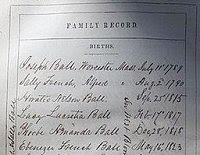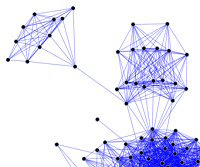Atheists, for example, have to decide whether to celebrate or ignore Christmas.
 In either case Christ is not central as far as they are concerned. They may be irritated, even angered, by the impression that believers are 'muscling in' on a festival that for most people is not about Christ at all. They might prefer that every person should decide for themselves.
In either case Christ is not central as far as they are concerned. They may be irritated, even angered, by the impression that believers are 'muscling in' on a festival that for most people is not about Christ at all. They might prefer that every person should decide for themselves.Believers on the other hand will often be searching for ways of 'putting Christ back into Christmas'. If we want to avoid the excesses of present giving, card sending, eating, drinking and partying, here are some ideas that Dud had to offer.
- Instead of or as well as giving Christmas cards, why not pray for the people we give them to? Make a note to pray specifically for them. Some people give Advent cards instead to encourage their friends to look beyond the snow, the robin, and the holly.
- Read the Bible as a family, encourage each family member to read out their favourite passage.
- Put Jesus back quite literally by making sure he is in everything you do or say.
- Connect with your faith. Remember that Jesus was born in a simple way, and that his birth holds meaning and is highly significnt.
- Go to a candle lit service. Remember that Christ is the Light in the darkness of our lives.
There's a welcome for every believer as an adopted son or daughter. We have a share in the life of Christ! This is indeed Good News! We read Matthew 1:1-17 and thought about the way the Lord had used all kinds of people in Jesus' family tree - many of them of rather dubious morals!
He clearly had no problem with human flaws or weaknesses, nobody is too bad to become one of his followers. All are welcome. We need to learn to let go of our flaws and give them to Jesus.
Finally we read Ruth 1:3-18 and thought about the utter faithfullness of this woman who was a Moabite (not even an Israelite).






